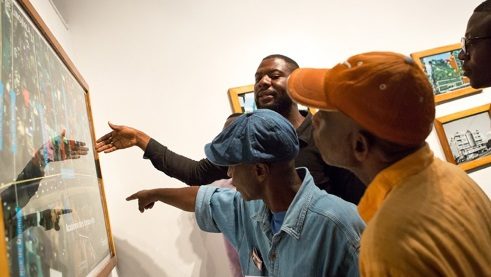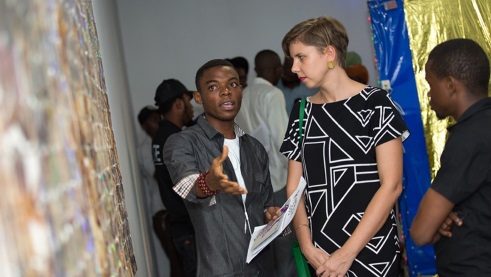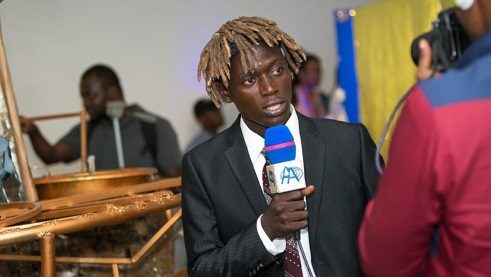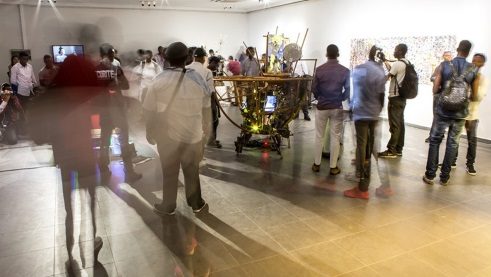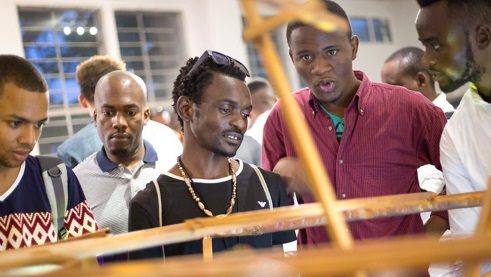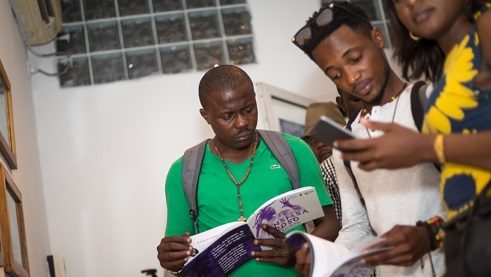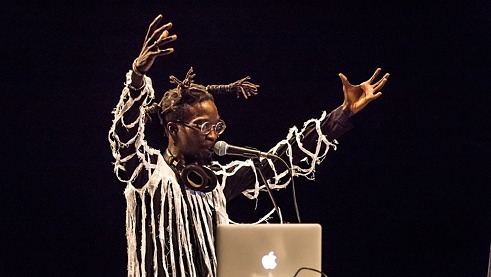A Digital City?
Kinshasa 2050
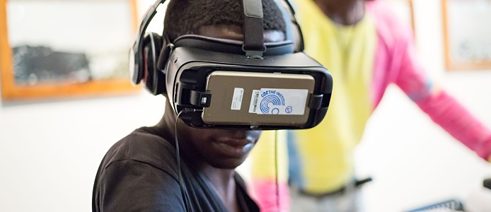
An interdisciplinary festival in the Congo capital invited artists to explore the digital future of Kinshasa. Nadine Siegert was there as the curator of the exhibition Kinshasa 2050.
Achille Mbembe says that to see the future, the world must look to Africa. But what does this future look like? Is it a utopian future in which the digital revolution helps people to communicate better and more easily? What role will artists play in these processes of thinking and creating the future? How do artists imagine the digital future of Africa?
The Goethe-Institut Kinshasa asks itself these same questions and developed Kinshasa 2050: A Digital City? together with the Institut Français. Artists and designers were called upon to grapple with these questions.
From nkisi to omnipresent communication
In response, more than sixty project ideas were submitted: apps for Kinshasa, software designed to simplify and provide guidance for both public and private life in the city of millions. What the content of the project ideas have in common is a pragmatic view of the future.A jury of local and international people selected the best works, which were then implemented by the artists in an exhibition. The product designers Iviart Izamba and Jean-Jacques Tankwey for example, designed furniture for the private and public space, which can be used to connect and charge digital devices, but also dare to take a very critical look at a post-human age in which humans appear to almost meld with the digital world and in which devices and machines have already become a much more self-evident part of our lives.
Wilfried Luzele Vuvu’s retro-futuristic video box showed a music video devised for the exhibition in which the laboratory is humorously depicted as an experimental space for future forms of life. We see scientists working on the liquefaction of humankind so that sperm and egg cells – our primary materials – are life forms of the future. Finally, the works by Hilary Kuyangiko Balu and Michel Ekeba also known as the “Kongo Astronauts” asked how much local spiritual systems, for example oracles and fetish figures such as the nkisi, can be used productively in the future.
Africa is being imagined from the inside out
The exhibition was accompanied by a fringe program with talks, films and a concert with the Senegalese musician Ibaaku, who journeyed into the future both musically and visually.A retrospective of the work of Cameroon director Jean-Pierre Bekolo showed a large number of his films, which not only investigate the future in terms of content, but also of film aesthetics. His futuristic thriller Les Saignantes, for instance, is considered the first African science fiction film ever. Not only in this film, but also in his latest production Naked Reality, the future is in the hands of strong women who rid themselves of disagreeable men both in utopian as well as dystopian future scenarios. Yet for Bekolo, philosophy is also promising: he dedicated a cinematic portrait to the Congolese intellectual Valentin-Yves Mudimbe. More than twenty years ago, in his books The Invention of Africa and The Idea of Africa, Mudimbe asked how the global North in particular invented its “Africa.” Even if it is about the past, the film is positioned perfectly within a festival about the future, as the artistic contributions show that Africa is increasingly being conceived and imagined from the inside out.
The festival „A Digital City" was supported by the Deutsch-Französischer Kulturfonds.
